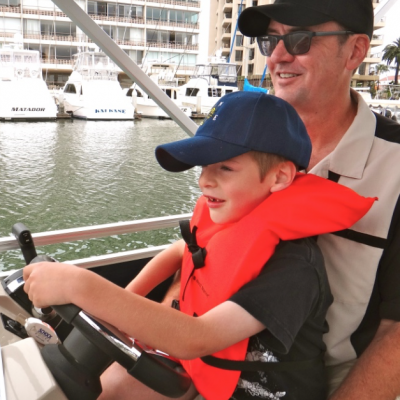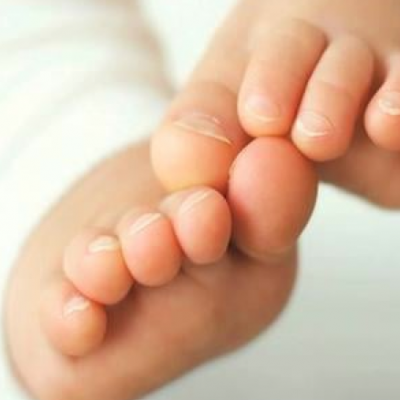Parenting Counterproductively? Learn About Common Discipline Myths & “No Drama Discipline”
“A no-drama response to a tantrum begins with parental empathy.”
Guest writer and parenting expert, Tina Payne Bryson, Ph.D.
Regardless of their childrearing approach, whether traditional or progressive, many parents share a fundamental misconception about what healthy and effective discipline is. As Dan Siegel and I explain in our new book No-Drama Discipline, what’s missing from the common understanding of “the D word” is knowledge of a few basic facts about a child’s brain.
When a child’s brain and nervous system become deregulated and produce the dreaded melt-down or some other misbehavior, the child has become virtually incapable of making good decisions. And what most parents don’t realize is that many, if not most, of their discipline techniques actually intensify the problem, leading to more, not less, drama. In other words, most discipline approaches are actually counterproductive.
No-Drama Discipline therefore shows readers how a little brain science can make discipline more effective and easier for everyone involved, while also teaching kids lessons and making them more responsible, relational, and resilient as they grow towards adulthood. As a result, one of the most difficult aspects of any parent’s life—discipline—can also be understood to be one of the most important and meaningful when it comes to shaping a child’s brain.
Working from this perspective, we debunk several prevailing myths about discipline. For example:
· Kids misbehave because they choose to: Actually, it’s much more often the case that children can’t behave, than that they won’t. Keeping a child’s developmental capacity in mind can make the entire disciplinary interaction less dramatic for everyone involved.
· It’s essential to discipline immediately following misbehavior: Actually, since the whole purpose of discipline is to teach, we must wait until our child is in a frame of mind to learn. We do that by connecting with them emotionally, and soothing them to help them become less reactive, and more receptive. Then, once they are calm and receptive, we can discipline effectively.
· A time-out is the most loving and peaceful way to discipline a child: Actually, it’s usually ineffective. Offering time to calm down is extremely important, but a time-out often intensifies the conflict, with the separation from the parent causing even more reactivity. In fact, it’s during these reactive times that kids need their parents the most. Giving a time-out means a parent misses an opportunity to connect and converse with the child and teach about better decision-making.
· Consistency is crucial: Actually, while consistency is of course important, it can quickly move into rigidity, which brings its own set of problems. Not only are kids capable of understanding varying degrees of context and complexity, it’s good for them to experience nuanced circumstances.
· The focus of discipline should be on a child’s behavior: Actually, it should be on the WHY behind the behavior, and on the relationship between parent and child. Behavior is often a symptom. Getting at the emotions or needs behind the behavior is often the most important thing for the parent to focus on.
· Discipline is all about getting kids to do the right thing: Actually, effective discipline means that we’re not only stopping a bad behavior or promoting a good one, but that we’re also teaching skills and nurturing the connections in our children’s brains that will help them make better decisions and handle themselves well in the future.
We all want to do what’s best for our children. And the more we can arm ourselves with knowledge about what actually works when it comes to discipline, then the more we can help them not only learn about acceptable behavior, but also develop skills and tools that will help them for the rest of their lives—all while deepening the relationship we share with them.
Dr. Tina Payne Bryson, Ph.D. is the child development and parenting expert helping you raise children who are happy, healthy, and fully themselves! Dr. Tina Payne Bryson is the co-author (with Dan Siegel) of the best-selling THE WHOLE-BRAIN CHILD (Random House Delacorte, 2011), which has now been published in 18 languages, and NO-DRAMA DISCIPLINE (due out in September from Random House). She is a psychotherapist at Pediatric and Adolescent Psychology Associates in Arcadia, California, where she offers parenting consultations and provides therapy to children and adolescents. She keynotes conferences and conducts workshops for parents, educators, and clinicians all over the world, and she has written for numerous publications, for example mom.me, SkillForKids and the PBS series “This Emotional Life.” She has also co-hosted a web-based parenting show and makes frequent media appearances at venues like TIME, “Good Morning America” and Redbook Mazgazine. She is the School Counselor at Saint Mark’s School in Altadena, the Director of Parenting Education at the Mindsight Institute, the Director for Child Development for Camp Chippewa in Cass Lake, Minnesota, and the Child Development Director for Lantern Camps. Tina earned her Ph.D. from the University of Southern California, where her research explored attachment science, childrearing theory, and the emerging field of interpersonal neurobiology.



